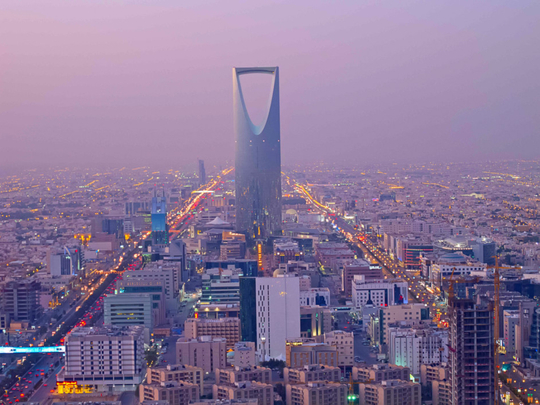
On January 1 of 2018, UAE and Saudi Arabia introduced Value Added Tax (VAT). VAT is an indirect tax imposed on all goods and services that are bought and sold by businesses, with a few exceptions. It is applied in more than 160 countries around the world as a reliable source of revenue for state budgets. It is imposed at each stage of the supply chain, from the production and distribution to the final sale of good and services.
The residents in Saudi Arabia actually received a triple whammy as not only VAT was introduced, but gasoline prices shot up more than 200 per cent and so did the price of electricity for most residents. The Saudi treasury is expected to be boosted by some $9 billion (Dh33.1 billion) in the first year.
In the days that have followed, the introduction of VAT has made people feel the rising costs associated with school fees, food, rent, transportation and just about everything. The Saudi government, in trying to soften the impact on its citizens, has started the Citizens’ Welfare Fund, whereby low-income families can apply for government assistance to soften the impact of the sudden rise in expenses. Hundreds of thousands of families have signed up and payments started trickling in from last month in preparation for the expected price increases.
While all of this was not unexpected, with much talk on the news media in the months preceding the introduction of new tariffs, many people still have not worked out ways to deal with the hike in prices. Perhaps it is too early in the game and the full impact of the new tax will be felt later. Yet, attention must be paid to spending patterns and consumers must adopt new measures to deal with the current reality.
Economists are beginning to call upon heads of households to curb the kind of free-spending that had been carried on from the boom in oil economy and what had become a way of life with many Saudis. They warn that it is not simply in these areas that prices will reflect an increase as the wave of these increases will encompass many other areas of life. Experts caution that without proper discipline and control, many families will gradually sink into a mire of stifling debts.
One example of extravagant spending is what one commonly sees during Saudi weddings when wallets are strained to the maximum in an effort to appease hundreds of guests. From wedding venues to banquets and feasts, many middle and lower-income families get swept away in spending far beyond their means. In an attempt to maintain their social status many are sucked into a life-long spiral of debt. Economists say such practices must stop.
Another way of dealing with rising fuel prices is by resorting to car pooling with relatives, friends, neighbours and colleagues. The lack of an extensive network of public transportation in Saudi Arabia forces many professionals to use their personal vehicles and the increased fuel prices will surely be an added strain on their monthly budget. Families have to work out car trips among their individual members more creatively in order to lessen the impact.
Saudis in particular have to display better budgetary control and rely less on others, economists warn. If you do not have the money for something, then you cannot afford it, and thus you should not buy it. Do not go the credit route and add more debt to your shoulders for items that are not really essential. If you cannot pay for it on your own, walk away from it. The money you save will allow you to have a peaceful night’s sleep.
There are also expectations that the various organs and ministries of the government will show similar fiscal responsibility in the execution of their work and the formulation of the national budget. The inexcusable mismanagement of public funds of the past decades by government officials — which translated into billions of dollars of state funds wasted through corruption, kickbacks and laundering — can no longer be tolerated.
This message has been delivered very clearly by King Salman Bin Abdul Aziz and Crown Prince Mohammad Bin Salman with the arrest of more than 200 individuals, including members of the royal family, for embezzlement of public funds. Expectations now stand firm that accountability will have to be part of fiscal responsibility and that is something that needs to be exercised by all.
A happy New Year to my readers and it comes to you without any VAT!
Tariq A. Al Maeena is a Saudi socio-political commentator. He lives in Jeddah, Saudi Arabia. Twitter: @talmaeena.








